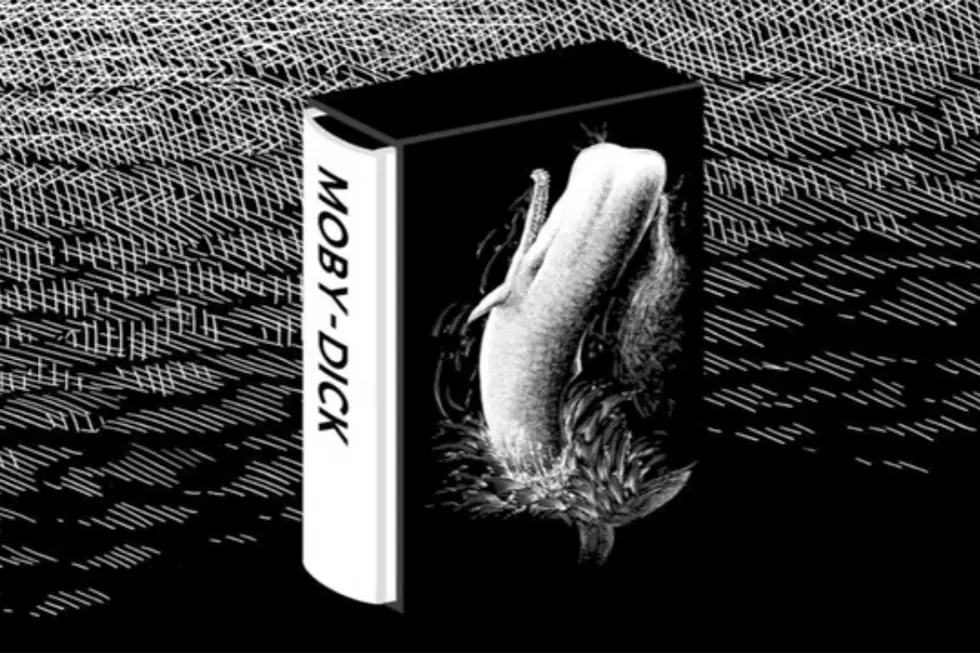
Building A Better Realm: An Interview About Webcomics And Art With Benign Kingdom’s Evan Dahm
Benign Kingdom fills a niche that lay absurdly open for too long: well designed and curated artbooks from webcomic creators. Somehow, the idea never occurred to me or most anyone for years, despite the absolute cavalcade of talent on display. Who knew Danielle Corsetto, creator of Girls With Slingshots, produced such gorgeous figure drawings? Who knew Yuko Ota, co-creator and artist of Johnny Wander, could fill a page with such whimsy and menace? Webcomic creators Frank Gibson, Becky Dreistadt, KC Green, Yuko Ota, Ananth Panagariya, and Evan Dahm, with the help of George Rohac, had an inkling when no one else did. And so they set out to show the world what these talents were capable of.
One enormously successful Kickstarter later, Benign Kingdom has presented the world with these awesome talents, and also helped demonstrate the viability of self-publishing. ComicsAlliance sought out Evan Dahm, one of the co-founders and creator of the webcomic Rice Boy, to discuss a changing industry and their place within it.
ComicsAlliance: How did Benign Kingdom start and can you tell us a little about it?
Evan Dahm: I and the other webcomic artists -- Yuko Ota and Ananth Panagariya, Becky Dreistadt and Frank Gibson -- wanted to make art books, and we decided it'd be cheaper and easier to make them all together. So, we've published a whole ton of different artbooks by different creators. We're trying to present work by people in webcomics especially, in a way that's classier than is normally presented.
A lot of this work is work that otherwise wouldn't be published. Like, our book by Danielle Corsetto is a good example of that. Her main comic is called Girls With Slingshots; it's a character-driven comic-strip comic, and she does tons of life drawing that just never goes anywhere. We published a book of that and it's really cool to see that in the context of the rest of her work.
CA: What would you say are the biggest challenges you've faced putting something like this together? What have been your biggest successes?
ED: Challenges -- it's very difficult for me to work with people. I've been self-publishing my own stuff in the most uncompromising way that I can possibly do for my whole career. So, I'm getting better at collaborating and telling people what I need from them and working back and forth. The successes, when we've done Kickstarters in the past, we've done very well. It's a very cool way to bring a lot of audiences together and get people excited about something and find new artists that they wouldn't know of otherwise.
CA: I was talking about this earlier with Spike Trotman. We had a real interesting conversation about comics and webcomics, self-publishing. I feel like we're in a really interesting point in the history of webcomics but also comics in general where you have things like crowdfunding and self-publishing coming together in a big way. Things like Kickstarter and self-publishing are no longer seen as the pathetic thing you do when you can't hack it. How do you feel about where crowdfunding and self-publishing are right now and where they might go?
ED: I don't know where they'll go but it is really exciting. Things like Kickstarter and, more recently, even the existence of the pre-order system outside of Kickstarter, that enables people who don't have the money and backing up front to get books printed. It's a more direct way to turn an audience into an engine that makes the book happen. That's perfect and honest, I like that and think it's really important. I wouldn't be able to do this without the internet and without access to all these people and things like Kickstarter. It is an exciting time but it's been an increasingly exciting time for the whole time I've been doing it.
CA: Do you think comics are fundamentally getting better?
ED: I think that there's more room being cleared for good comics. I think that there will always be a lot of bad stuff. The thing is, for me as a person working mostly outside of publishing institutions, I'm trying to really do things that I feel are my own, and in my own idiosyncratic way, which is quality to me; making something uncompromising in that respect. I think that's good, that people are able to do that. I think comics are getting better and I think that self-publishing being a more attainable thing is yielding more good than bad, and more aggressively new weird good stuff, and more stuff that represents marginalized people better. That's not something that big money is ever going to have a real interest in doing. So, it's getting better in a ground up kind of way, definitely. I'm excited and enthusiastic about that.
CA: Speaking of you and your history as an artist and entrepreneur, what brought you to this? Five years ago, what were your thoughts on comics, and your future plans? How did they change?
ED: I've been doing webcomics pretty seriously for about eight years. Rice Boy, I started about eight years ago. I have desperately wanted to make stories and draw stuff my whole life; this was a way I could do it and push forward on my own and make it available and build an audience. It was a thing I could latch on to and be working on consistently.
I didn't even know what webcomics were when I was starting that. So I fell into that scene a little bit. Every professional part of it is me trying to get people interested and make something sustainable out of that audience. So, it wasn't so much a conscious choice. It was something I personally need to be doing. I'm trying to make it work on my own terms as much as possible.
CA: How did everyone in Benign Kingdom find each other?
ED: We all do a ton of conventions. Everyone I know in comics are the people that go to conventions and we hang out. These little scenes emerge out of people who do similar work and who like each other's work and get along. It's cool being friendly with such a huge percentage of my peers. And you get to go on these little summer camp convention excursions with them.
CA: Comics, historically, have kind of been a bloody business in terms of rights and money. There's a lot of history of creators getting ripped off and I find the changes that make Benign Kingdom possible really interesting, because it's you guys working within the system of comics, but in a much more altruistic way. Do you find those sort of communal ideas more common in the indie scene? Do you think those values are changing comics?
ED: In an egalitarian way, hopefully, and in a way that respects the creators we work with as much as we can afford to. The internet and all these ways in which the playing field is being leveled a little for self-publishing, and really [allowing] small operations to take off, that is leading to a system where artists can have as much weight as an entrenched institution that is more interested in making money than doing good creative work. I think we're moving in a good direction, and that's what we're trying to do, that's what we're trying to embody with Benign Kingdom.
CA: Any plans for Benign Kingdom in the future? Can you give us a peek at what's next?
ED: Becky and I are working on a really cool screen-printed poster set. We have several ambitious book projects that are in early development. I don't have anything more specific than that right now. But we have things we want to do, definitely.
More From ComicsAlliance


![Tidal Energy of Rainbow Vomit: Cartoonist Ines Estrada [Hire This Woman]](http://townsquare.media/site/622/files/2015/04/header1.jpg?w=980&q=75)
![‘Boxtrolls’ Lead Animator Travis Knight On Bringing A Big, Mad, Beautiful World To Life [Interview]](http://townsquare.media/site/622/files/2014/09/boxtrolls2.jpg?w=980&q=75)

![Let The Characters Do The Talking: Terry Moore On ‘Rachel Rising’ And ‘Strangers In Paradise’ [Interview]](http://townsquare.media/site/622/files/2014/09/Untitled-114.jpg?w=980&q=75)

![From ‘Peepo Choo’ To ‘Ghost Rider': The Unusually Cool Career Of Felipe Smith [Interview]](http://townsquare.media/site/622/files/2014/08/felipe-smith-hed.jpg?w=980&q=75)
![Comics’ New Golden Age: Spike Trotman Talks Taking Down The Gatekeepers [Interview]](http://townsquare.media/site/622/files/2014/08/spiketrotman.jpg?w=980&q=75)
